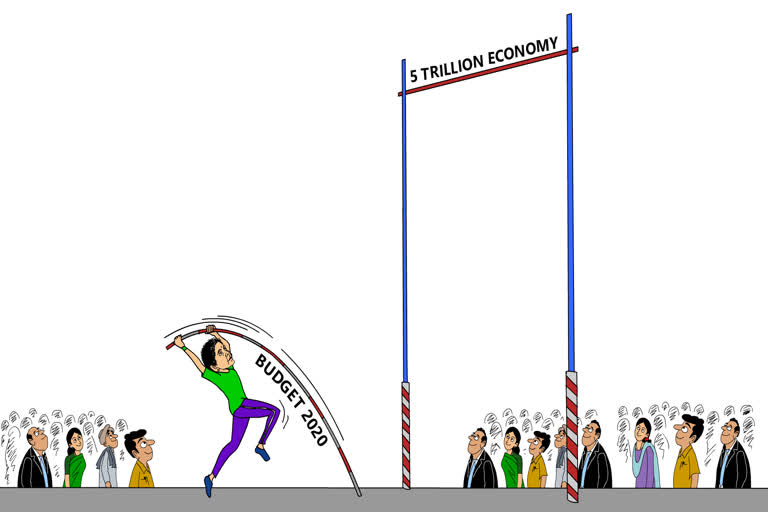New Delhi: The Finance Minister presented the Economic Survey 2019-20 to the Parliament today. Though how we ‘manage’ the Economy has changed over the decades, the job of Survey remains the same i.e. to set the tone of policy making in the future.
It is from this perspective, the Survey has identified five key areas, where the finance minister Nirmala Sitharaman should focus while presenting the annual Budget.
1. Improving the ease of doing business: Survey pointed out that it takes two and a half times more approvals from Delhi police to open a restaurant than acquiring a gun. You need more than two weeks to open a company in India as against half a day in New Zealand.
Who can take entrepreneurship in this environment? Obviously the one with a fat money bag and connections. The economy losses and common people concentrate in getting jobs. The biggest sufferer in the process is innovation.
2. Improving credit penetration: The Survey pointed out that Indian banking sector is operating at a suboptimal scale, much below its peers, in terms of credit penetration.
3. Need for efficient Logistics: In India manufacturing is limited to only half a dozen States. The price of coal increases by nearly three times of the pit head price to cover a distance of 1000-1500 km. Overall India spends no less than 14 per cent of GDP on logistics.
Apart from the freight tariff what hurts is the time of travel. Survey points out that imports reach faster to the destination than the exports from India.
4. Employment: Any economy in the world needs jobs, with 130 crore people India needs that even more. As per projection we will cross China in population in next two years and the population is getting younger.
Survey asks for going whole hogged for assembling, as China did in its growing years. But, only assembling cannot support this huge young population, India must pave way for creation of right skills and encourage people to take up entrepreneurship.
5. Free agri-economy: From a food deficit economy to a food surplus economy, India covered a long distance. What didn’t change though is political interventions in agri-economy.
It is time we take a policy decision to stop acting whenever the price of onion moves. Because this spoils the prospect for investment in storage.
Like stock market, we may put circuit breakers in each commodity at the start of the season. Government can intervene once the pre-set ceiling is broken but not at its whims and fancy and not to improve its poll prospects.
(Article by Pratim Ranjan Bose. Views expressed above are his own.)



